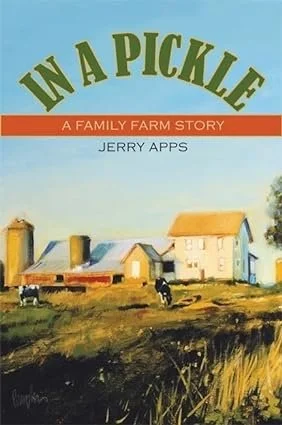Photo by Bruno Guerrero on unsplash
So much has changed in the past few years, economically and socially and technologically, that almost everything we once took for granted and assumed would always be the same has been utterly transformed and made unrecognizable.
Rotary dial telephones. The milk man.The price of gas.
Isn't there a speed limit on change? Hasn't some law of physics been broken?
Things have changed so much that it is difficult to recall, or even imagine, what small farm life was really like a half-century ago in rural America. Did families really live on small acreages and support themselves by working the land? Did they really milk cows by hand and gather eggs from the henhouse and butcher their own meat?
At a museum display of 19th century clothing, I once overheard a woman questioning the authenticity of a colorful gown. "They didn't have gowns like that!" she exclaimed. "Look at the colors!"
To prove her point, she gestured to a black-and-white photo of women from the period. No colors. In her mind, colored textiles were a modern invention.
Similarly, a recently published family farm story penned by Wisconsin author Jerry Apps must be identified as a work of fiction. "In a Pickle" takes place in 1955 and its main character is a young farmer and manager of a local pickle salting station, Andy Meyer, who is pitched into conflict with a multinational corporation determined to force the small acreage farms that supply its pickles to expand and modernize or get out of farming.
Pickles were a vital cash crop for Midwest farmsteads of a half century ago. Cultivated and harvested by hand, a couple acres of cucumbers were a lucrative cash crop during hard times. Farmers hauled their cucumbers to the local pickle factory and were paid for them right on the spot with no waiting.
"Most farm products required a wait before the money came in," Apps explains. "Even selling milk required a two-week wait for a milk check. But not cucumbers. During those long, dreadful, and often fearful Depression years, thousands of farmers in central Wisconsin had turned to growing cucumbers."
A native of rural Wisconsin, Apps managed a cucumber salting station in the 1950s and has a personal history with small-town farmers and strong-arm corporations. He learned first-hand how modernization can disrupt the traditional order of things and the people who have learned to depend on that tradition.
Through Andy Meyers, you can hear the author's lament for his quondam profession:
“You don’t take care of land by plowing 50-acre fields, by growing 30 acres of cucumbers, by pouring tons of fertilizer on the fields, by trying to farm a thousand acres.”
Reading academic histories or pouring over statistics that document the profound changes that have occurred in rural America over the last few decades doesn't show the flushed faces or the sweating brows or the tearful goodbyes of real people in real places.
"In a Pickle" effectively colorizes an otherwise black-and-white image of a small Midwestern community in the midst of a transformation, but you have to wonder: "Was it ever really like that, or did the author just make it up?"

